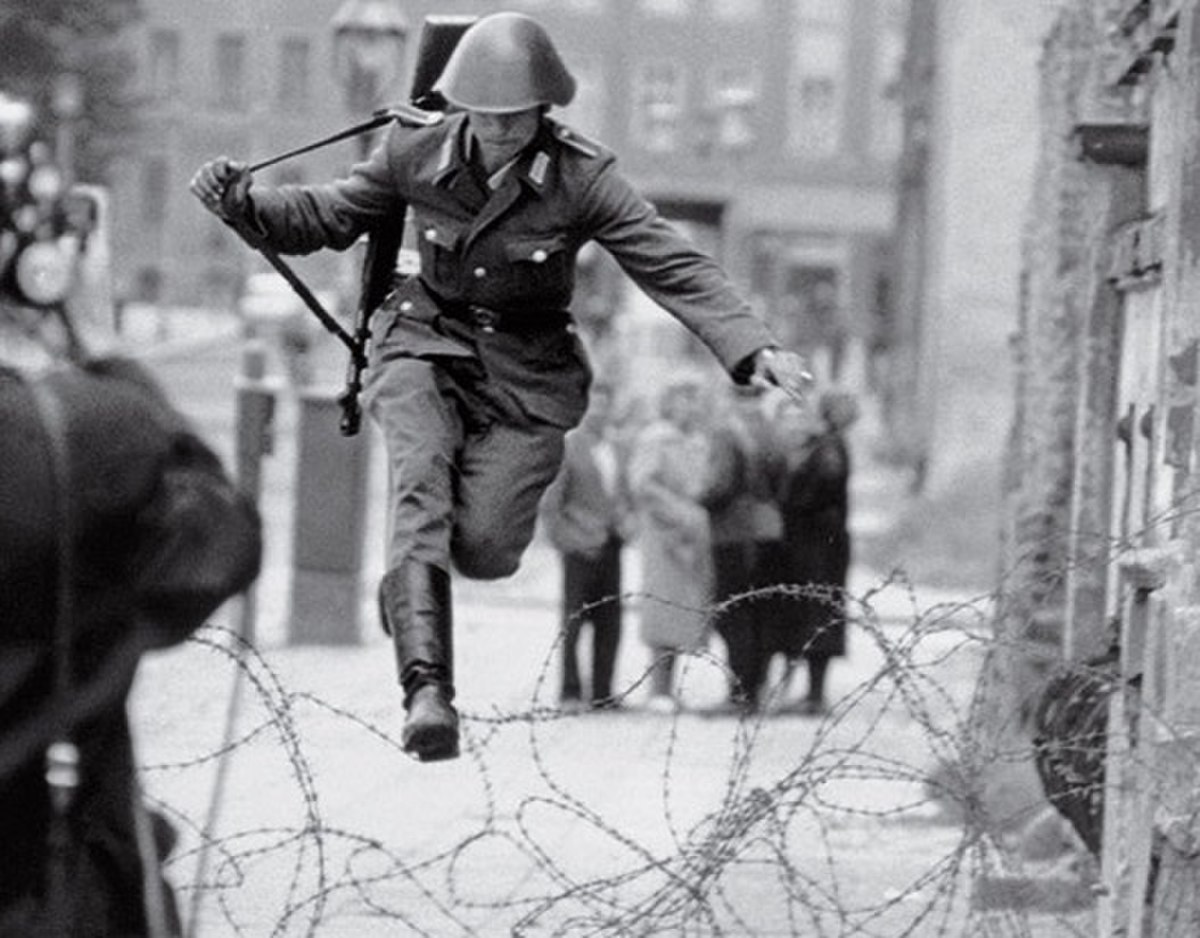
Berlin Wall
Berlin, GermanyThe Berlin Crisis of 1961 was the last major incident in the Cold War regarding the status of Berlin and post–World War II Germany. By the early 1950s, the Soviet Union approach to restricting emigration movement was emulated by most of the rest of the Eastern Bloc. However, hundreds of thousands of East Germans annually emigrated to West Germany through a "loophole" in the system that existed between East Berlin and West Berlin, where the four occupying World War II powers governed movement.
The emigration resulted in a massive "brain drain" from East Germany to West Germany of younger educated professionals, such that nearly 20% of East Germany's population had migrated to West Germany by 1961. That June, the Soviet Union issued a new ultimatum demanding the withdrawal of Allied forces from West Berlin. The request was rebuffed, but the United States now limited its security guarantees to West Berlin. On 13 August, East Germany erected a barbed-wire barrier that would eventually be expanded through construction into the Berlin Wall, effectively closing the loophole.
